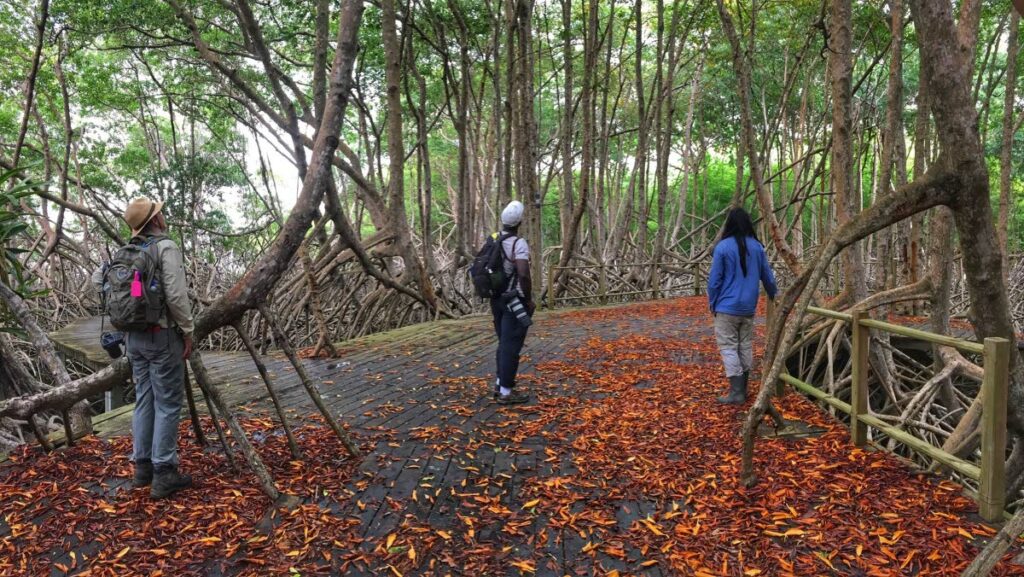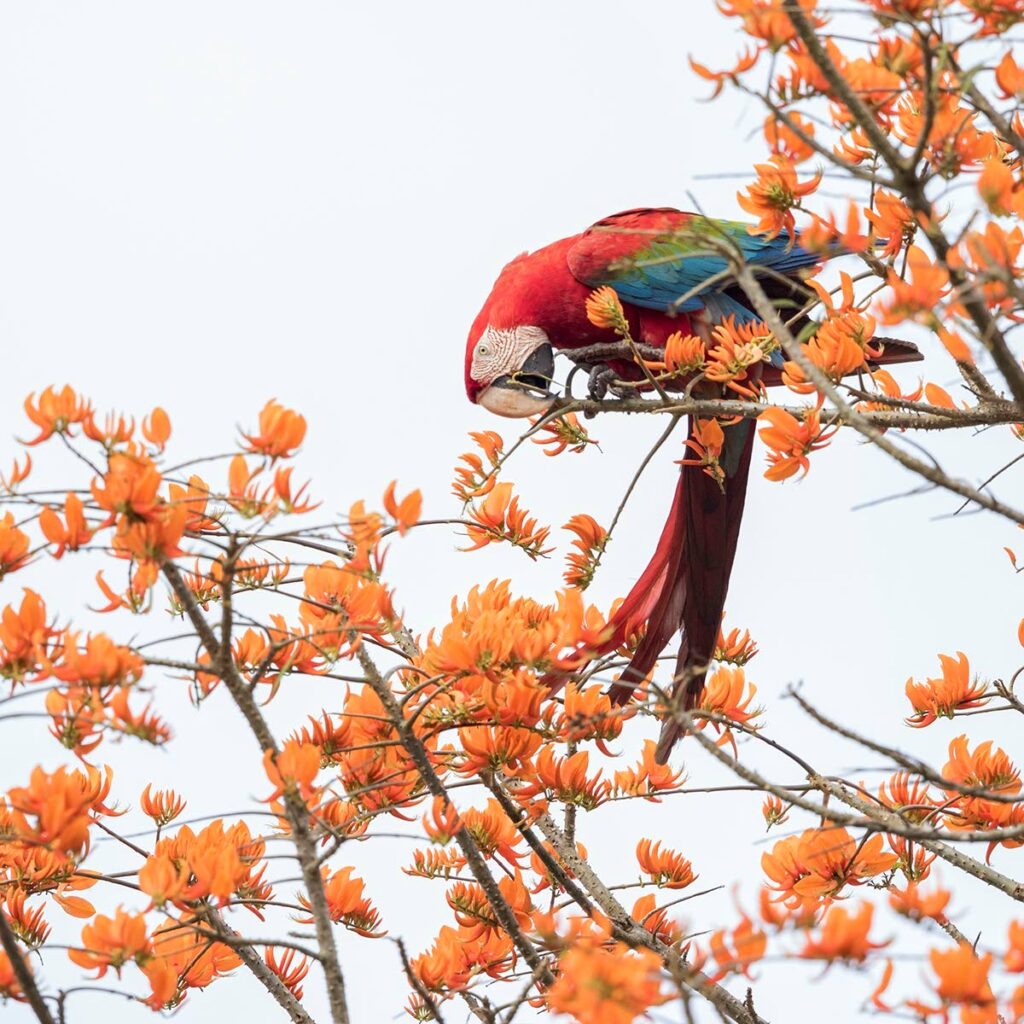Birding & Being: Gateway to the Natural World

Faraaz Abdool leads us on a journey of reconnection; and encourages us to find joy, beauty and commonality in nature. Birding, he advocates, is an easy entry to nature, and to “being.”
TO wrangle the disciplines of ecology and philosophy and neatly package seemingly diverse teachings and guidelines seems improbable and ambitious with lofty, unattainable aspirations. Let us not overthink it as we set out on this journey of being. Let us not think about it at all.
Before we can explore the concept of being, let’s consider why we should cast attention toward birds. Of all the nature-based activities on offer, what makes birds so special; why is the reader being coerced into birding? For starters, it is extremely likely that you have noticed a bird before. Familiarity, check. They are literally everywhere: every habitat on almost every continent. They are probably the most noticeable creatures of the natural world, infiltrating even the most urbanized areas. We have national birds and state birds; birds in popular culture, and birds depicted in ancient art. Significance, check. They’re also colourful, adorable, and charismatic creatures, remnants of a prehistory so far removed from our present lives that they border on timeless. Wonder, check.
Nature is all around: but where did it go?
As children, when we are born, we are surrounded by images of nature adorning everything from crib to pyjamas – an endless parade of animals and trees are the décor for a benign world. Images from nature welcome us into the world. Unfortunately for many of us, as we age, we gradually drift further away into a materialistic, manufactured world. Consequently, we can feel lost and disconnected as our only relationships are increasingly with our own species and devices. Birds are the most convenient cornerstone in forging a reunification with the natural world.

It has long been proven that spending time in nature is a healing activity. The concept of birds being therapeutic is gaining further traction, especially with the recent publication of the book “Ornitherapy” by Holly Merker, Richard Crossley, and Sophie Crossley. However, one cannot simply go birding and expect benefits, whether immediate or belated. Let us, therefore, consider ‘how’ birding should be engaged to produce the best results.
We are a competitive species. This might be one of the more difficult traits to leave behind as we are conditioned to venerate those who have gained the most, scaled the insurmountable obstacle, and so on. Ranking systems permeate almost every aspect of our lives, and we all desire to be number one. Even within birding, counting species has led to quantifiable life lists, some aspire to be the top eBirder in their county, state, or country. This in turn has encouraged some folks to go to astounding lengths to see as many species as possible, leading sometimes to treading unethical grounds.
((USE THIS SECTION PAGE 12 WITH HEADLINE: Lessons from nature))
Experience for yourself
There’s not much in the way of instruction beyond the encouragement to experience the natural world, to be in the natural world. Any suggestion of instruction would be external to the one who experiences, it and is, therefore, a distraction, a point of contention. The strongest motivation is that which emanates from within. To glean lessons from nature, we must be willing to observe, pay attention and learn from the natural world.
Among those who relearn the ways of nature, the lessons may be considered insightful, serendipitous or life-changing. The parallel to formal academic training includes: first, be prepared to learn, and the corollary, be prepared to continue learning forever. Nature is infinitely teaching, the lessons not limited by any academic field or designation – nor exclusive to any demographic.
We have arrived at the world of the casual birder. The practice goes by various labels, but all underpin a common ethic: passive observation of birds. By undertaking this practice, over time we are poised to ensure experiences which would have bypassed us entirely under other circumstances. Birds, and all nature, exist in the present. By shedding our attachments to both the past and future, we can share the experience of being.

Furthermore, the practice of casual birding allows us to investigate familiar sights on a deeper level. Perhaps it is a unique call that is made by one of your backyard birds, you may realize that this call is reserved for when the neighbour’s cat waltzes through. It could be gazing at the velvety black feathers of an ani, noticing how each feather is dipped in purple and green iridescence. Suddenly, areas of our lives we may have glossed over now reveal springs of beauty.
Exploring being through birding is merely the introduction – a gateway – to a deeper and more expansive connection with nature. Birds are the welcoming party, the conspicuous players in an elaborate, boundless field. They can captivate even the most restless minds, if not for a fleeting moment, able to bring humility and awe with a single movement. Gradually we come to realize that the bird’s existence is wholly dependent upon every other facet of nature. The sensitization process is unforced, and we become aware of only what we are ready to accept. This breeds a heightened environmental consciousness which cascades into an instinctive personal awareness, sensibility and advocacy.

In this pivotal moment, each person, organization and by extension the entire world is in desperate need of a greater love for nature. Getting to grips with commonality across all forms of life breeds love; loving a bird, a tree, or the ocean – is loving yourself. Not only will it elevate us to being more conscious citizens of the earth; it will ensure we treat each other better. There is no limit to what one can come away with, nature is infinite and so are we. Learning about nature in this organic manner complements and stimulates self-discovery – both are incredibly profound, unending journeys.


Comments
"Birding & Being: Gateway to the Natural World"